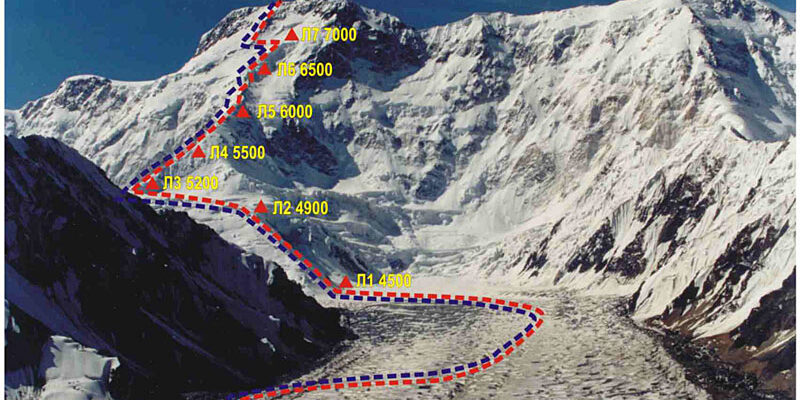The unforgiving slopes of Peak Pobeda, also known as Jengish Chokusu, in Kyrgyzstan, have once again claimed a life, adding a somber chapter to the annals of high-altitude mountaineering. Yet, the disappearance of Russian alpinist Natalia Nagovitsyna has been shrouded in a revelation that casts a stark light on the fine line between courage and profound recklessness.

A Pre-Existing Condition: The Alarming Revelation
Alexander Ishchenko, a fellow alpinist who previously rescued Nagovitsyna, has come forward with a deeply disturbing claim. According to Ishchenko, Nagovitsyna embarked on her fateful journey to the 7,439-meter (24,406 ft) summit with a severe, unhealed double leg fracture. This debilitating injury was sustained just months prior, in May, during a rockfall incident on Teke-Tor, another challenging Kyrgyz peak.
Such a grave injury typically demands extensive recovery, often spanning many months, if not a full year, involving surgical intervention, physical therapy, and gradual rehabilitation. The two months reportedly available for recovery before her attempt on Peak Pobeda would be deemed grossly insufficient by any medical or mountaineering standard.
“To attempt a `seven-thousander` with such a significant and unhealed injury is not merely ambitious; it borders on professional negligence, both to oneself and to any team members inadvertently involved.”
The Unwritten Rules of the Mountain: Responsibility and Repercussions
For many, the allure of a “seven-thousander” is irresistible, a testament to human endurance and will. However, Ishchenko’s account suggests that Nagovitsyna`s ambition may have tragically overshadowed critical judgment. His hypothesis – that she deliberately concealed the injury from her guide to ensure her participation – paints a picture of extreme, perhaps even dangerous, determination. It raises uncomfortable questions about the personal responsibility climbers owe not only to themselves but to their teams, whose lives can be jeopardized by undisclosed medical conditions.
Ishchenko did not mince words, labeling Nagovitsyna’s actions as “absolutely irresponsible” and “reckless.” He went further, asserting that “people died saving her,” a statement that underscores the profound ripple effect of a climber’s decision, especially when it disregards fundamental safety protocols. High-altitude rescues are inherently perilous, often requiring other climbers and specialized teams to risk their own lives in treacherous conditions. The mountain, in its stoic grandeur, cares little for human ambition or the intricate calculations of risk. It operates by its own ancient, brutal rules.
The Harsh Reality: A Permanent Resting Place?
The tragic reality of high-altitude mountaineering is that not all those who perish are brought home. Alexander Pyatnitsin, Vice-President of the Russian Mountaineering Federation, confirmed this grim prospect. He stated that the operation to retrieve Nagovitsyna’s body would be extraordinarily complex and astronomically expensive – potentially costing hundreds of thousands of dollars.
Such exorbitant costs often fall outside the typical budgets of national federations or even comprehensive personal insurance policies, leading to the agonizing decision to leave fallen climbers to the mountain, forever enshrined in its icy embrace. This decision, while heartbreaking, is a pragmatic consideration in a domain where every resource is finite and every action carries immense risk.
Lessons from the Summit`s Shadow
The mountaineering community, a close-knit world of individuals bound by shared passion and peril, is left to grapple with the implications of this revelation. The incident serves as a chilling reminder of the critical importance of integrity regarding one`s physical state, respect for the mountain`s power, and an unwavering commitment to team safety. When these tenets are seemingly disregarded, the fallout extends far beyond the individual, echoing through the community and prompting introspection.
Natalia Nagovitsyna`s story is a stark reminder of the unforgiving nature of the world`s highest peaks and the critical importance of judgment, honesty, and preparedness. As Peak Pobeda holds its latest secret, the mountaineering community is left to ponder the lessons learned, hoping that such a tragic and controversial end might, in some small way, prevent future calamities and reinforce the paramount importance of safety in the pursuit of extreme adventure.









